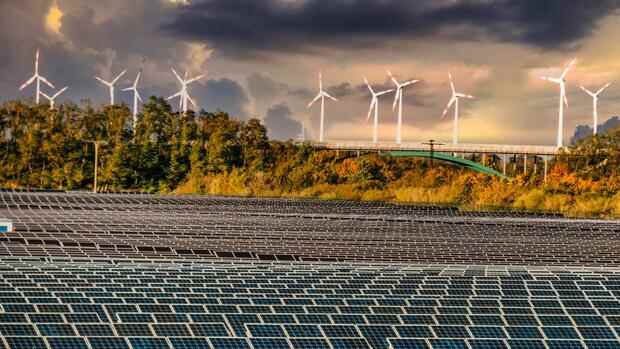The Federal Environment Agency wants to achieve more climate protection through a reform of the VAT.
(Photo: imago images/Jürgen Held)
Berlin The chairman of the German Tax Union, Thomas Eigenthaler, is critical of the Federal Environment Agency’s (UBA) proposal to align VAT more closely with ecological criteria in the future.
“I think that’s very problematic in terms of EU law,” Eigenthaler told Handelsblatt. The EU VAT Directive does allow for very limited exceptions to the tax rate, but not to such an extent. “The European internal market lives from the greatest possible synchronization of taxation and cannot use tax subsidies of this magnitude for reasons of competition.”
The authority wants to achieve more climate protection through a reform of the VAT. For example, solar systems, but also fruit and vegetables should no longer be taxed, but meat should be taxed more. What is environmentally friendly should become cheaper, what is environmentally harmful should no longer be subsidized by the state with taxes that are too low, according to the UBA.
Eigenthaler said that in practice it is hardly possible to differentiate between harmful and harmless. “Such a proposal opens the door wide for tax bureaucracy and also invites large-scale tax evasion.”
Top jobs of the day
Find the best jobs now and
be notified by email.
According to the Federal Environment Agency, the “Climate and Environment Relief Package” focuses on the sharp rise in food prices and mobility costs. According to this, if VAT for public transport or plant-based foods such as fruit and vegetables were reduced to zero percentage points, private households could save six billion euros a year.
“Hands off diffuse subsidies in tax law”
The tax should also be dropped on solar systems. In addition, the improvement of heating systems must or should Repairs from shoes to bicycles only be subject to the reduced tax rate of seven percent instead of the current 19 percent.
The background to the proposal is also current changes in European law, which legally secure the proposals. The authority explained that value added tax in Germany was a proliferation of individual regulations that also did not take ecological concerns into account.
“For example, the reduced VAT on animal products is an environmentally harmful subsidy because it favors environmentally harmful products,” said UBA boss Dirk Messner. In addition, the relief from staple foods would benefit the poor in particular.
In return, the subsidies for environmentally harmful products should be phased out – but only at a later date. The reduced VAT of seven percent for meat should be replaced by a regular 19 percent in the future.
>> Read also: Meat more expensive – fruit and solar systems cheaper: This is how the industries are reacting to the tax advance of the Federal Environment Agency
Vegetable products only have a fraction of the climate footprint compared to animal products: for example, seven to 28 kilograms of greenhouse gases are emitted for one kilogram of beef, and less than one kilogram for one kilogram of vegetables.
However, Eigenthaler referred to current examples that show that tax cuts have no positive impact on prices and therefore no “controlling” effect. Both the current tank discount and the reduction in VAT in the catering trade have not led to measurable price reductions, and in the catering trade they have even led to price increases.
The tax expert therefore advises: “Hands off vague subsidies in tax law. These end up in the pockets of the wrong people.”
More: What you should now consider when replacing oil heating and gas heating

